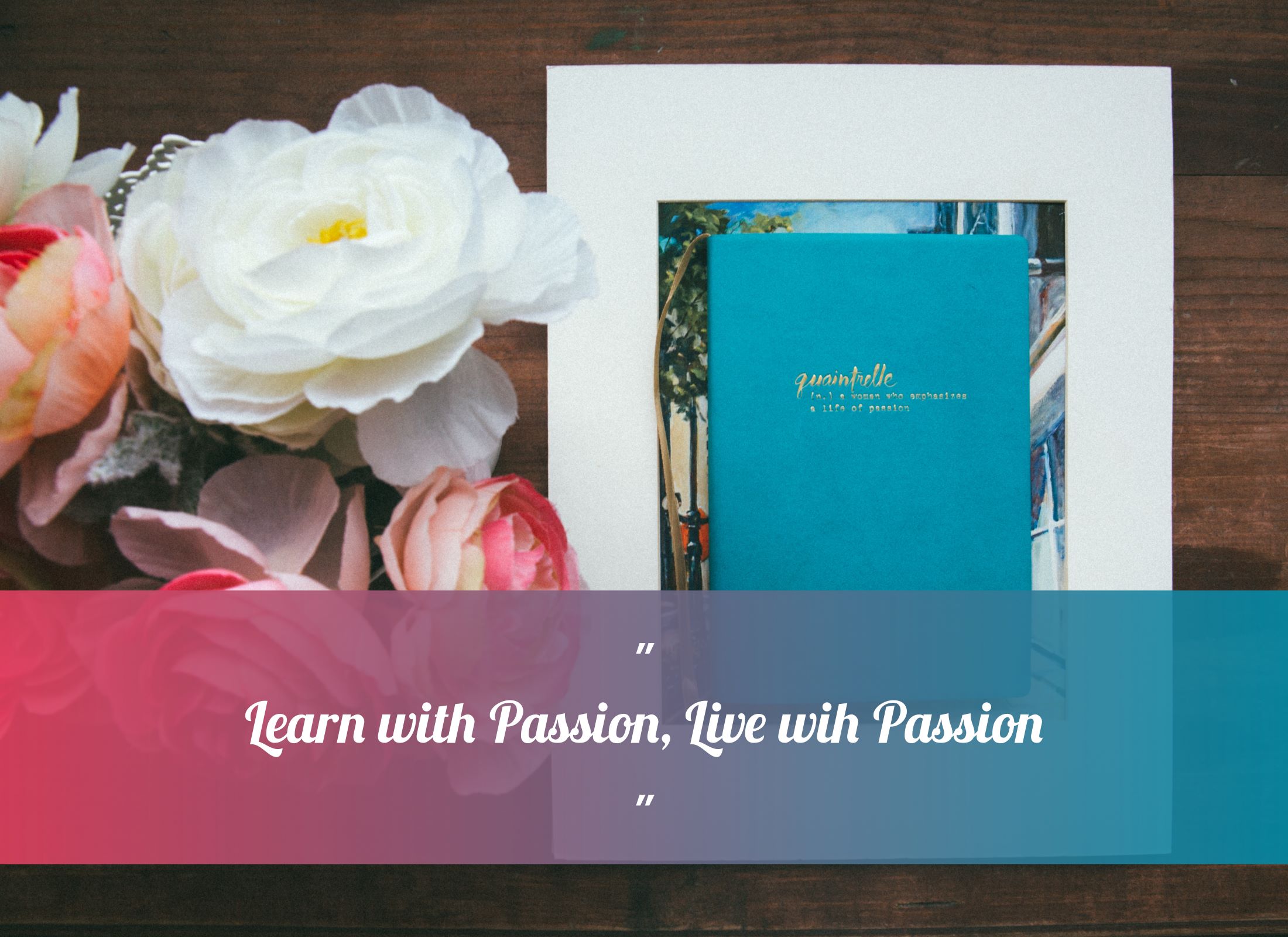
Savvy You7 Qualities of Effective Lifelong Learners
``Lifelong learning is education for the knowledge economy.``
Foreword, xiii, 2003 World Bank Report
DOWNLOAD PDF
Of all the things we need to thrive in today’s knowledge economy, being a lifelong learner is most fundamental. And lifelong learning is as much about having the right attitude to learning as it is about constantly growing our skills and competencies. This is why looking at the qualities that make people successful lifelong learners is still very relevant.
A knowledge economy like ours is one in which knowledge, above all else, drives the creation and maintenance of wealth. According to a 2003 World Bank report, “A knowledge-based economy relies primarily on the use of ideas rather than physical abilities and on the application of technology rather than the transformation of raw materials or the exploitation of cheap labor.” [Executive Summary, xvii]
It’s easy to see how the concept of lifelong learning relates to the knowledge economy. The World Bank report makes this connection crystal clear when it states that “Lifelong learning is education for the knowledge economy.” [Foreword, xiii]. Education at every level, elementary to tertiary and beyond should help people become effective lifelong learners. Indeed the focus of the report is on how developing countries can modify or improve their education systems to accomplish this goal. [World Bank Report, PDF DOWNLOAD]
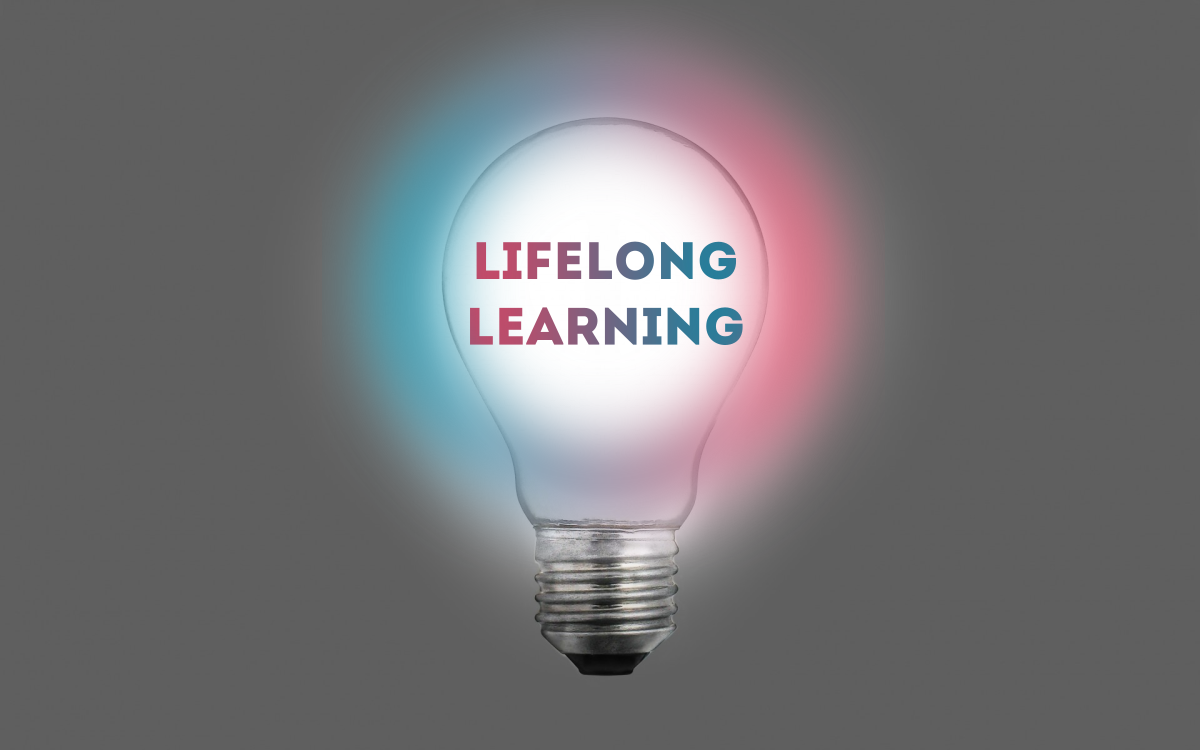
ABOUT LIFELONG LEARNING
Before I get into the qualities of effective lifelong learners, it’s useful to look at the things that make Lifelong Learning unique.
>>>> 1 <<<<
Lifelong Learning can take place anywhere and anytime. It occurs in formal, informal and semi-formal contexts. This multiplicity of contexts acknowledges that there are opportunities to learn everywhere. What the World Bank recommends in their report is that governments and education administrators make effort to provide enough learning opportunities to help people acquire the skills they need to thrive today.
>>>> 2 <<<<
Lifelong Learning covers every stage in the lifecycle of a person, from early childhood to post retirement [Foreword, xiii]. In addition to acknowledging that people learn differently at different stages of life, lifelong learning takes into account that learning needs differ at each stage and according to the unique situation of the individual.
>>>> 3 <<<<
Lifelong Learning is learner-driven. This means that the purpose, focus and substance of learning is determined mainly by the learner whether she is acting independently or with the assistance of tutors or teachers. Teachers are “guides to sources of knowledge” not ‘transmitters of knowledge. [World Bank Report, pg 28 – 29]
>>>> 4 <<<<
Lifelong Learning is competency driven. A competency is a set of related skills which make an individual competent at doing something. The general competencies which make people employable in the most basic sense include Literacy, Numeracy and basic IT skills. Now that lifelong learning is seen as a necessity, the ability to manage one’s own learning is a competency employers and governments are increasingly keen to measure. [World Bank Report, Page 103]
>>>> 5 <<<<
Taken together, the 4 points above make it clear that the purpose of Lifelong learning is to empower people for self-actualization. Learning should equip people with competencies for life, employment, entrepreneurship & higher education as well as active citizenship and other civic responsibilities. Making education as robust as it needs to be to meet this standard is a priority for governments and Civil society organizations around the world.

Download the HMJS Newsletter and read more about learning as a growing entrepreneur. Subscribe below…
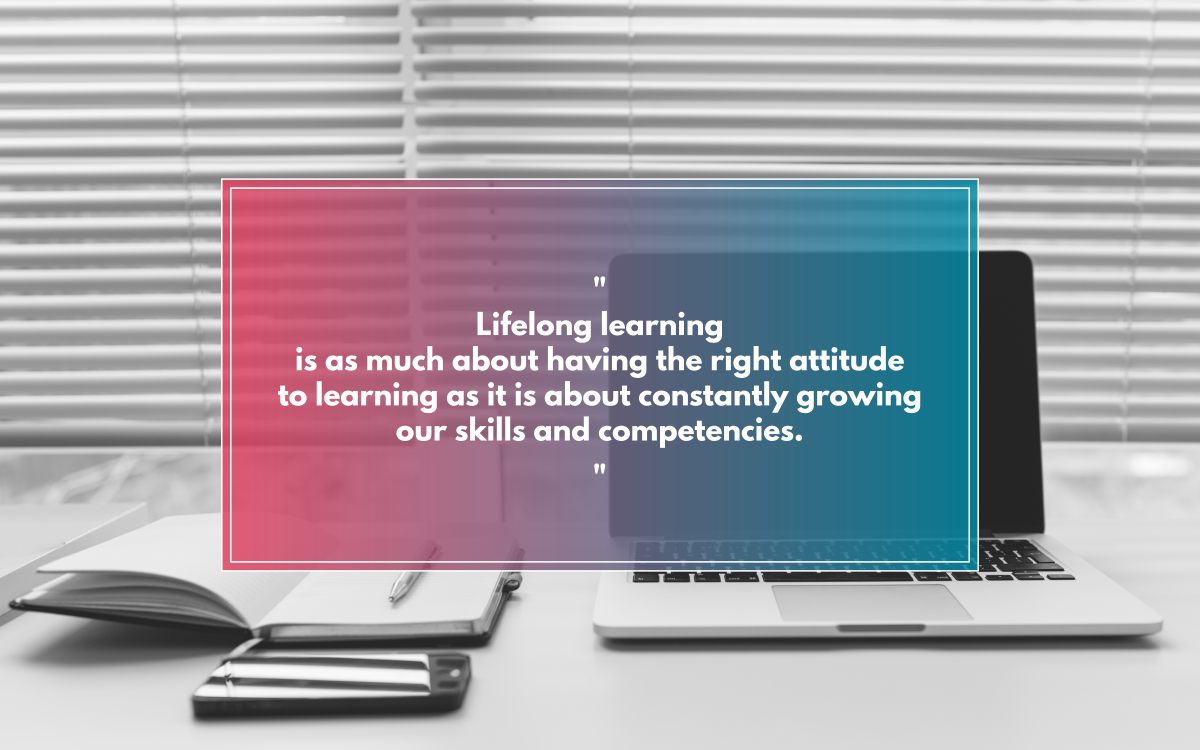
7 QUALITIES FOR EFFECTIVE LIFELONG LEARNING
I recently read an HBR article which captured, in broad strokes, the qualities that help people continue to learn and grow in contexts where change is the norm. In the article titled ‘Learning how to learn’, Erika Andersen identifies 4 key traits namely: Aspiration, Self-awareness, Curiousity and Vulnerablity [READ MORE] These were the traits which helped many of her consulting clients keep up with the learning demands of their industries and organizations.
While these traits hold true for all lifelong learners, I take a different approach in this article. I have identified 7 qualities that have kept me on my toes as a lifelong learner and which I think are essential for effective lifelong learning. In many ways, they are related to the broad traits mentioned in the HBR article and where possible, I have tried to make such connections clear.
*** 1 ***
BE ABLE TO RECOGNIZE KNOWLEDGE GAPS
In my opinion, this is very important. These days, it’s not a question of if we know and what we know but how well we know it and how up-to-date our knowledge is. In the knowledge economy where knowledge production is accelerated and where knowledge quickly becomes obsolete, it’s important to know how to recognize where there are gaps in our knowledge, understanding and skills.
In some cases, employers and mentors help with identifying these gaps and recommending (if not demanding) that they be addressed. With more and more young people now working independently as freelancers & entrepreneurs, this responsibility now rests with the individual. We need to have the self-awareness and attentiveness to recognize when and where we are lacking in knowledge and skills.
THE HOW >>>
It’s only with exposure that knowledge gaps can be identified. Exposure can be achieved through feedback from employers, mentors and peers. Reading, research and networking within your industry are also very useful. That said, it’s important that you pay attention or you’ll miss the relevant pointers.
*** 2 ***
BE ABLE TO SEE BENEFITS OF NEW KNOWLEDGE
While there are many who love to learn for the sake of it, most of us have practical concerns which demand that we judge new knowledge by its utility. If we find new knowledge useful, we pursue it and if we don’t, we ignore it. Many people operate on the basis of this calculus. So, it’s fair to say that among other things, the people who are motivated to learn are those who see the benefits of new knowledge.
What some people don’t realize is that their ability to see the value of new knowledge also depends on what they know. An ignorant person will probably not know the benefit of having a new skill set. Benefits include the possible applications of new knowledge, its relevance in an industry/ industries, the level of demand for it, the enhancement effects it can have when combined with the skills you already possess, etc.
THE HOW >>>
Knowledge has an epic positive feedback loop. Its effects can be unpredictable, far-reaching and enduring. This is why doing simple things like reading the news, journals, blogs, tweets and Facebook posts matter. The small and big things we know determine our ability to see the value of new knowledge among other things. We just have to keep up and keep at it.
*** 3 ***
BE CURIOUS ABOUT THE WORLD
Curiosity is a great motivator of learning. It is the desire we have to know and grasp the world around us. For some, the world to be known is as small as an industry or society and for others, it is as vast as the universe itself. While everyone would identify themselves as curious by nature, I think curiosity can be cultivated. And it is this learned curiosity that is useful for effective lifelong learning.
THE HOW >>>
I’m not exactly sure how we can teach ourselves to be curious. I think it helps to strive to know more about the things we like or enjoy, no matter how trivial. As we mature and our interests change, this curiosity will be applied to newer and newer situations. In this way, it becomes a habit that helps us see and pursue learning as a lifelong venture.
*** 4 ***
DON’T BE INTIMIDATED BY NEW KNOWLEDGE
Having to learn a new skill can be intimidating for many reasons. I write about this in another post [READ HERE]. In order to be effective lifelong learners however, we cannot let ourselves be scared by new knowledge. And even when we are scared, we cannot let fear stop us from working boldly to learn.
THE HOW >>>
As someone who has confronted this fear, I think nothing helps us conquer it like knowing we are up to the challenge. When you can look back and see how you’ve tackled similar learning challenges, you will face the one at hand more confidently. So, to conquer this fear, whatever its root cause, try pushing through it. Trust me; it gets easier and easier with each try.
*** 5 ***
DON’T BE INTIMIDATED BY THE NEED TO LEARN INDEPENDENTLY
Much of lifelong learning is self-directed. As a lifelong learner, you need to have the courage, initiative and discipline to set a learning course for yourself and follow through with it. Many of the learning opportunities available today assume that people are able to manage their own learning efforts. So, we cannot afford to be intimidated by the need to work things out by ourselves.
Truth be told, working independently does not mean that learners cannot seek the assistance of institutions, teachers, tutors, peers, etc. Even with this help, the learner is still in control and bears much of the responsibility when it comes to deciding what to learn, how to learn and when to learn.
THE HOW >>>
The ability to handle self-directed study is what basic educational institutions are expected to teach people today. Once a person has this competency, the next hurdle is ensuring that they are actually capable of exercising it. Today, the ability to act on this competency depends on access to key infrastructure like internet connectivity, computing hardware, libraries and other learning spaces.
It’s fair to say we’re already engaged in directing our own study efforts. It’s just that some people are more actively engaged and more effective at it than others. To do this well, you need to learn about yourself and the learning styles or contexts that suit you best. Next, you need to take action. As with all skills, you get better at it with practice.
*** 6 ***
BE WILLING TO TACKLE LEARNING IN SMALL CONSISTENT STEPS
Many adults simply cannot afford to set aside 2 or 4 years exclusively for study. It’s a reality that has shaped older lifelong learning efforts such as Distance Learning programs here in Nigeria. That said, setting time aside exclusively for study is still considered ideal. While it certainly has its advantages, for many working adults around the world, it is simply impractical.
To be effective lifelong learners, we have to be willing to learn at a pace and within contexts that are workable for us. This often means that we have to be comfortable with pursuing our learning goals in small, consistent steps.
THE HOW >>>
Many people are getting ahead in life and their careers because they are willing to take this approach. They are able to live up to their financial, work and family obligations while learning new skills to propel them to the next level. The bottom line is this: it works. Take the time to find out how people in similar situations go about it.
When I started this business years ago, I quickly understood that I had much to learn if I wanted my business and brand to suit the 21st century Nigerian woman. I make time everyday to read and learn new skills. It’s part of my daily, weekly and monthly to-dos. In fact, I’ve planned things in such a way that learning and research are an essential first step for many of my business activities be it jewellery making, blogging or graphic design. I have intentionally made learning a critical part of what I do as an entrepreneur every single day.
You can take a similar approach. Don’t just do what you are good at. Aim to reach the next level and you’ll find yourself on an upward trajectory. You should also take a look at this HBR article in which Liane Davey breaks down how to go about learning a new skill while also working. [READ HERE]
*** 7 ***
VALUE ALL KINDS AND FORMATS OF KNOWLEDGE
The internet provides an amazing set of tools for lifelong learning. There’s a lot of variety in the formats of content and the learning platforms available. People learn through online courses, videos, blogs, journals, games, podcasts, infographics, etc. The effectiveness of these tools confirms what educators have long known: that there are multiple valid learning pathways (learning sequences) and environments (places & contexts).
To be an effective lifelong learner, you should value all formats through which knowledge can be imparted. They will certainly not deliver the same depth or scope on issues. They will however help to reinforce the explicit & tacit knowledge you already possess while gradually exposing you to new information.
THE HOW >>>
I think bias, not just personal preference, plays an important role here. Traditional educational institutions tend to place greater value on particular kinds of materials over others. So people acquire certain preferences and biases like Words over pictures, books over blogs, articles over videos, etc. People even end up with preferences that may not even be suited to their own personal learning style.
Each form of content and learning environment has its advantages. Games and simulations are great for learning strategy, videos are great for learning how to do things & can have an effect similar to one-on-one interaction or tutoring, and infographics can help with learning the relationships between different related things. Each format has something to offer and allowing yourself to experience many formats for learning purposes can do a lot to boost your zeal for learning in general.
POSTSCRIPT
You are already a lifelong learner. The question is: how good and effective are you at it? This article could be a timely reminder of how you can improve as a lifelong learner. Far from needing another totally immersive educational experience like the type provided by traditional 2 & 4-year colleges, perhaps what you need is an upgraded attitude and commitment to lifelong learning. With the right attitude, you can better chart a learning course that empowers you and your community. Goodluck!
-
24Jan
Succeed in 2017: Practice Good Stress Management
It's a whole new year. Like you, I feel refreshed, full of energy and ready to get things rolling. I've tried to set goals, psyche myself and anticipate obstacles like a good planner should. And of al...
-
16Dec
Give The Gift of Beaded Jewellery
Tis the season for giving and receiving gifts - my favourite time of the year. I'm sure you've got your list of people to surprise this Christmas. That's the easy part. The tough part is finding somet...
-
05Aug
5 Fresh Ways To Think About Positivity
Positivity is like a lens through which we see the world. It affects our experiences, our outlook and these in turn influence how we act. In this way, positivity (or the lack of it) also 'radiates' wi...
-
10Jun
Exploring Self-Awareness
Self-awareness is a skill. It is one of the 3 skills which together form a critical competency known as Self-Competence or Personal Competence. To be self-competent, one must have self-awareness, self...



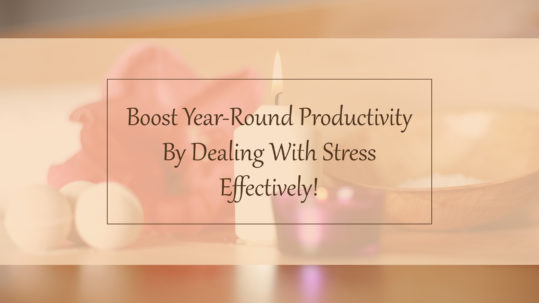

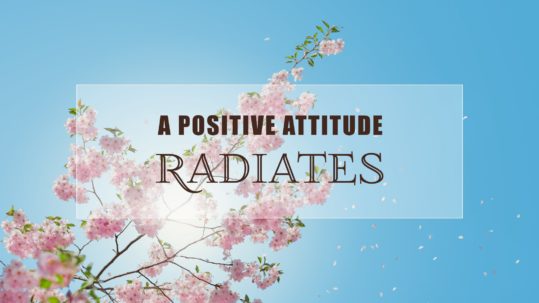
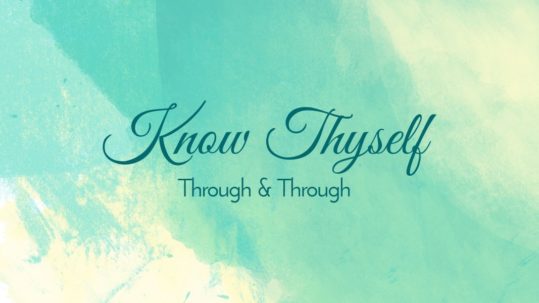
Sorry, the comment form is closed at this time.